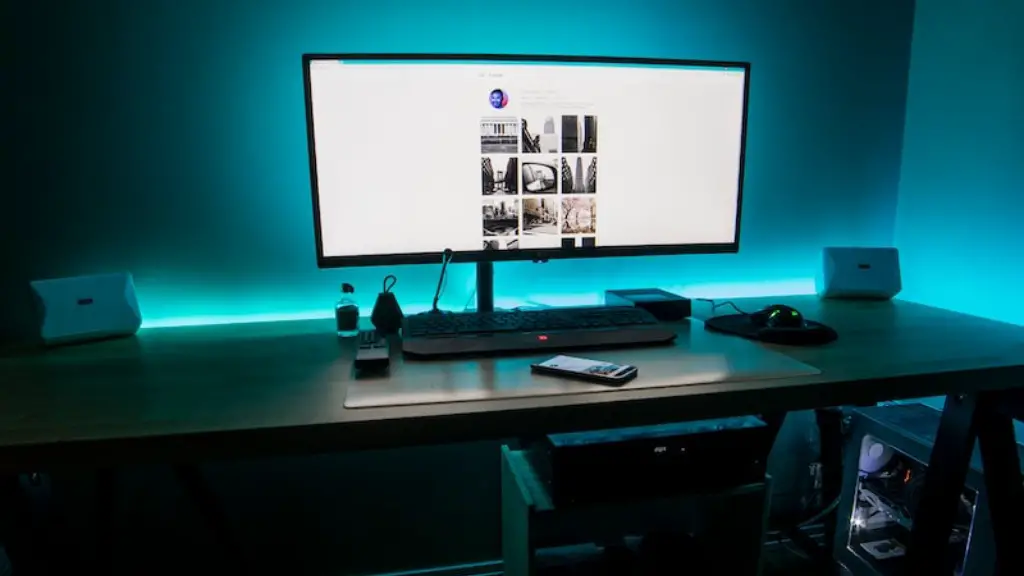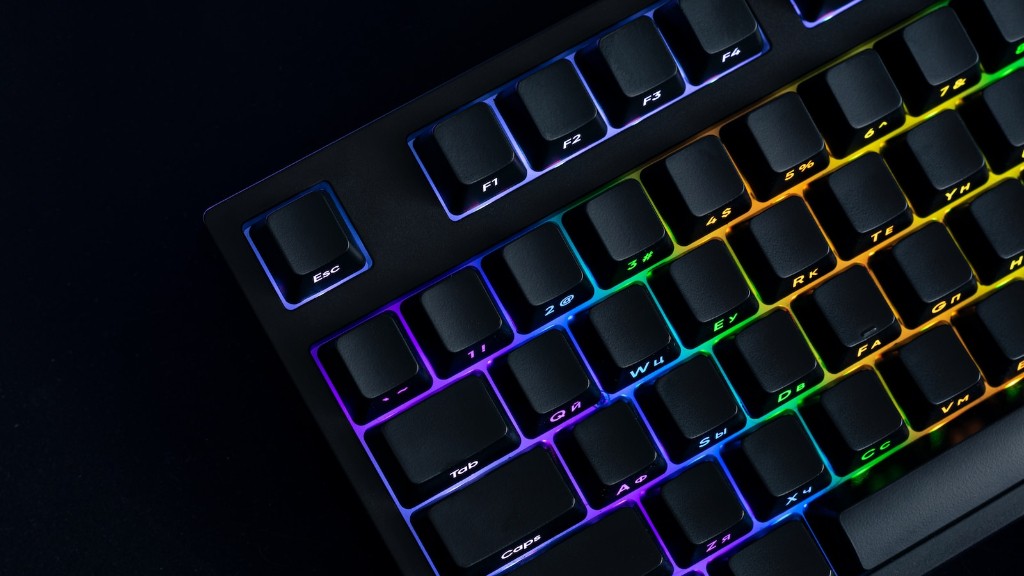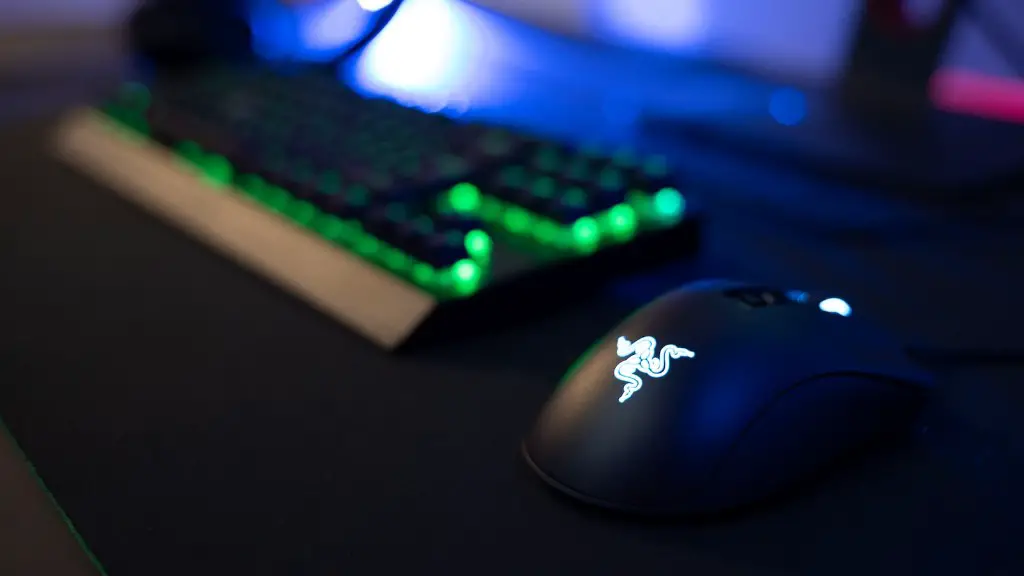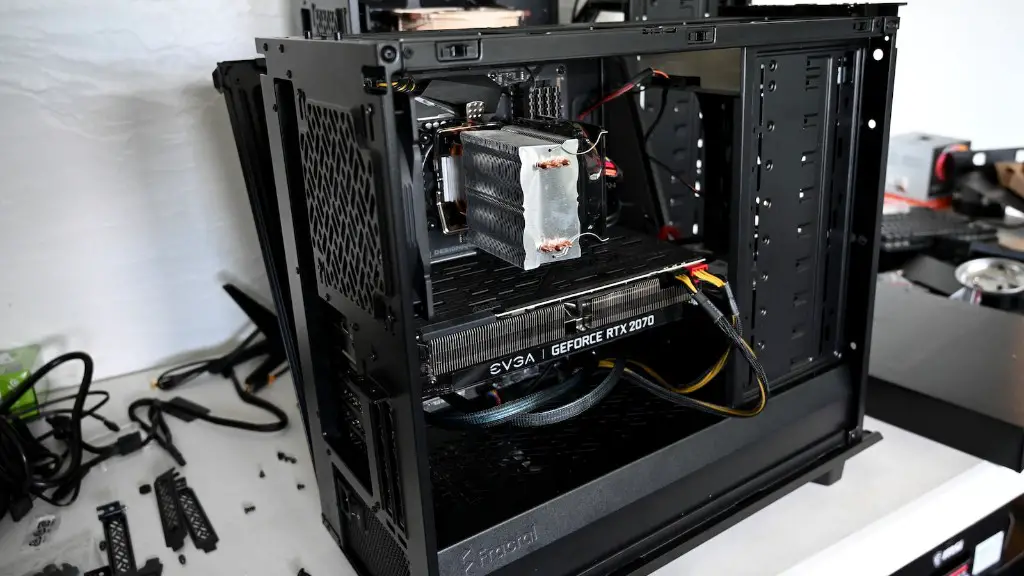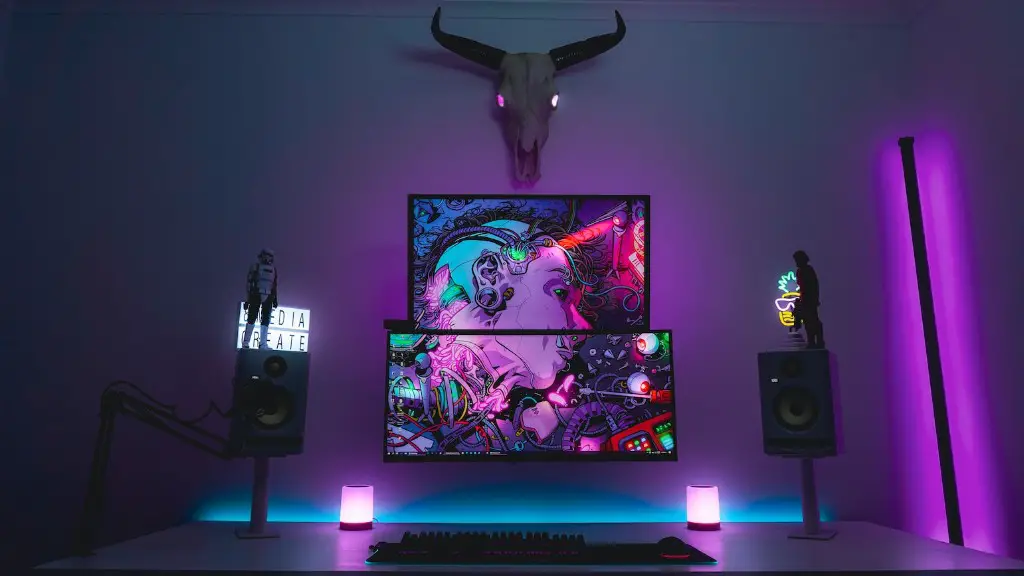Gaming PCs produce a lot of heat and oftentimes require advanced cooling systems to keep them running at peak performance. If you are looking to cool your gaming machine, there are several techniques and products you can use. This guide will outline some of the best strategies to keep your gaming PC cool.
The first and most important step to cooling your gaming PC is having adequate airflow. You can do this by making sure that the case fans are positioned properly, the side panels are off, or by using a thermal paste to increase the overall heatsink effectiveness. Additionally, you should clean out your computer regularly to keep it free of dust, which can clog the fans and ventilation systems.
Another way to keep your gaming PC cool is to use a liquid cooling system. These systems replaced traditional air cooling components on the CPU and GPU. This liquid is heated by a radiator and then brought back to the CPU and GPU, transferring the heat away from the vital components.
You may also want to invest in a case with plenty of vents and slots for fan customization. High-end gaming PC cases are built with the latest technology to maximize air flow and provide easy access to tweaking your cooling settings. When purchasing a case for your gaming PC, consider one that has heat sinks, vents, dust filters, and various fan settings.
Finally, overclocking your gaming motherboard can also help cool your gaming PC. By overclocking, you increase your processor frequency, allowing it to run faster and accomplish more tasks. This extra strain on your processor generates more heat, so it is important to adjust your cooling system to handle and dissipate the extra heat.
Customizing Fans
An essential part of cooling your gaming PC is to customize and adjust your fan settings. Many CPUs, motherboards, and GPUs come with fan controllers which allow you to manually increase or decrease airflow. By doing this, you can ensure that your gaming PC has enough cooling to handle intensive tasks such as gaming or rendering.
In addition to fan controllers, many gaming PC cases come with adjustable fan slots. This means you can install additional fans to help cool specific components such as the graphics card or processor. However, you should avoid installing too many fans, as too much air flow can create an unpleasant noise from the case.
Finally, you may want to consider adding additional ventilation panels to your gaming PC case. Most cases come with at least one ventilation panel in the top or rear, which is usually enough, but if needed, you can add additional vents to your case to help with airflow.
Choosing the Right Case
The right gaming PC case is essential in providing adequate cooling. Cases come in a variety of shapes and sizes and each provides different levels of cooling. Most mid-range and high-end gaming PC cases are designed with advanced ventilation systems to help keep the interior of your case cool.
When choosing a case, you should make sure to consider the number of fans and vents that it has. A case with more fans and vents can provide better airflow, helping to keep your components cool. Additionally, you should look for a case with dust filters, which help keep dust from clogging up the ventilation system.
It is also important to consider the materials and the design of the case. Heavy duty steel or aluminum cases offer incredible durability, but may trap heat. Conversely, lighter weight ABS plastic cases provide better air flow but can be more fragile.
Finally, you should consider the cable management of the case. Poorly designed cable pathways can cause issues with airflow and can make it difficult to install components. Look for cases that have plenty of cable management spaces to keep your case neat and tidy.
Cleaning the Computer
A clean gaming PC is essential for efficient cooling. Over time, dust and dust particles collect on the internal components and can block the ventilation system. This prevents air from flowing freely, significantly reducing the cooling capabilities of the computer.
Therefore, you should clean your gaming PC at least once every two weeks. You can use compressed air cans to blast away the dust. You should also consider using an anti-static cleaner on the interior components to help prevent the buildup of dust.
It is also important to clean the exterior of your gaming PC. Oftentimes, the case collects dust and dirt, which can further reduce the cooling ability of your gaming PC. To clean the external case, you can simply wipe it with a damp cloth or anti-static cleaner.
Choosing the Right Cooling System
A quality cooling system is essential for managing the heat generated by a gaming PC. Air-cooling is the most affordable cooling option and it works well for average gaming PCs. However, if you are looking to overclock your components or run more intensive tasks, you may benefit from a liquid cooling system.
Liquid cooling fully immerses the components in a semiconductor liquid. This liquid is heated by the components and is then transferred to a radiator, where it is cooled and circulated back to the components. This cooling method offers more efficient cooling than air cooling, allowing for higher performance and reduced cooling costs.
When choosing a cooling system, you should consider the noise levels. Liquid cooling systems typically come with some level of noise, while most air cooling systems are relatively silent.
Finally, you should also consider the installation process. Some air cooling systems are very easy to install and can be mounted on the motherboard without having to remove the CPU or GPU. On the other hand, liquid cooling systems can be difficult to install and may require additional components to be ordered.
Upgrading Parts
Finally, if your gaming PC is still running too hot and your cooling system isn’t enough, you may need to consider upgrading your components. For example, if your graphics card is overheating, you may consider investing in a liquid-cooled graphics card.
It is also important to consider adding additional fans to your PC. This can help keep all of your components cool and can also provide better air flow. Make sure to choose the right size and type of fan, otherwise it may not fit in your case.
If your processor is still running hot, you may want to consider upgrading to a higher performance CPU with better cooling capabilities. You can also purchase aftermarket cooling components such as heatsinks or thermal paste to help cool the processor.
Finally, if you are still having difficulty keeping your gaming PC cool, you may want to purchase a laptop cooling pad. These pads are designed to increase air flow around the laptop, helping to keep it cool even during intensive gaming sessions.
